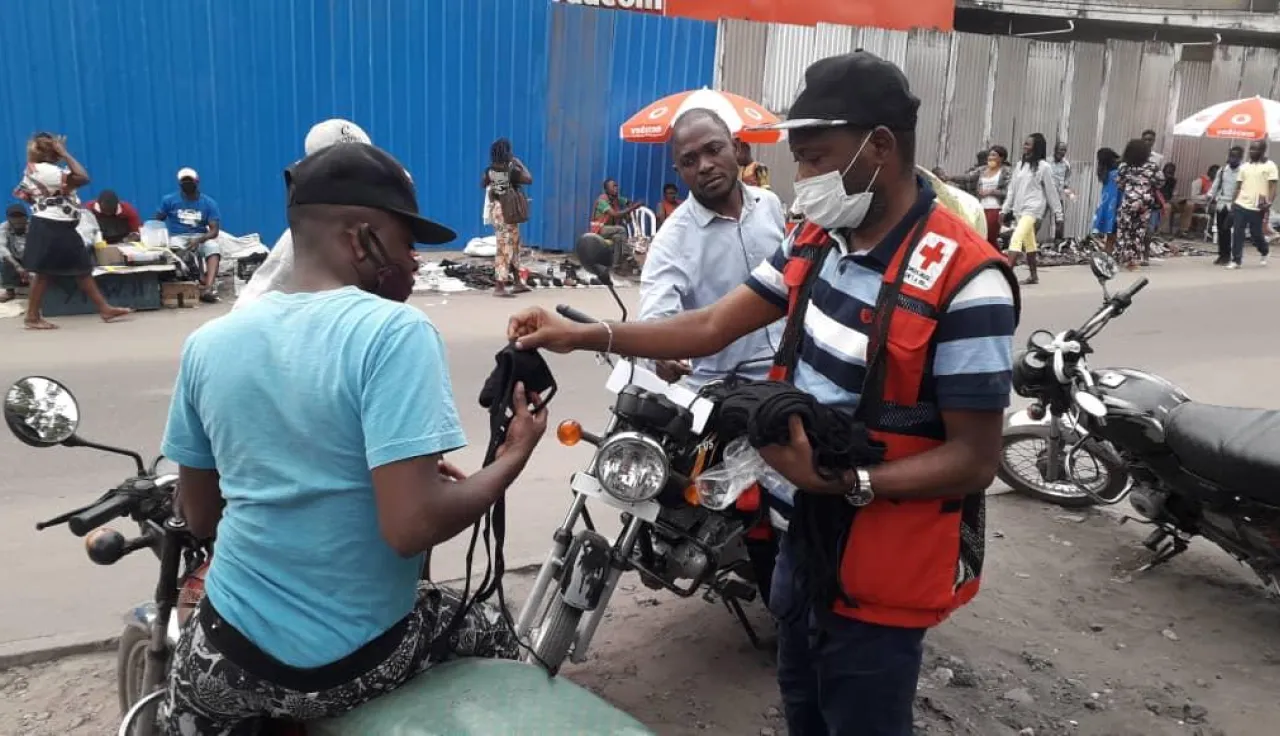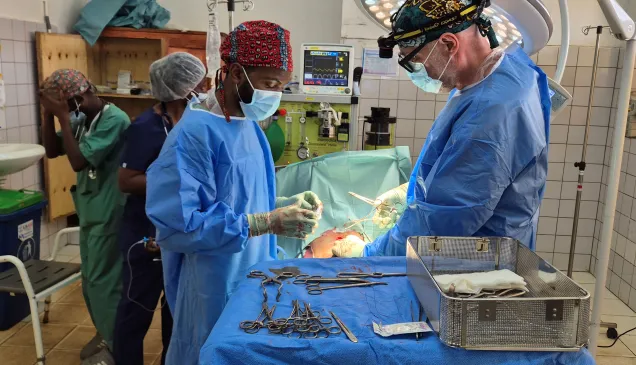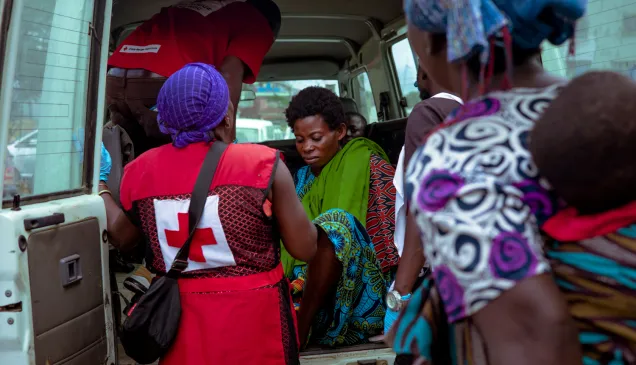ICRC response to COVID-19 in the Democratic Republic of the Congo

In addition to outbreaks of cholera, the Ebola virus and measles, which continue to claim thousands of lives in the Democratic Republic of the Congo (DRC), the country now has to grapple with the coronavirus pandemic. This latest crisis, whose socio-economic and health consequences will be felt for some time, is overloading systems of health care and essential services that are already struggling, particularly in the east of the country where armed violence and conflict continues to exact a heavy toll on the local population.
The ICRC has had a continuous presence in the country for many years and works in partnership with hospitals and health centres, water-supply services, children's centres and prisons. We have reorganized our humanitarian operations to meet a new priority: ensure the continuity of essential services to the population by providing equipment and supplies to deal with the virus and developing targeted support for COVID-19 measures with our partners.
We remain actively involved in helping communities to overcome the consequences of armed conflict while also helping them in the fight against a pandemic that has become a part of everyday life. This latest response is the focus of the facts and figures below.
Protection of civilian population
- Provided awareness-raising training to security forces on international human rights law, monitoring populations and the rules governing the use of force during public order operations in a state of health emergency.
- Continued to campaign for the safety and security of medical workers and facilities and to an end to attacks.
- Distributed guides on police conduct and behaviour and donated infection protection and control kits to 31 police stations in Kinshasa and six police stations in Goma.
- Broadcast radio messages on preventing sexual violence, which has risen during the pandemic. The messages are broadcast four times a day in Kinshasa.
What can Ebola teach us about coronavirus?
Some lessons from the Democratic Republic of Congo. pic.twitter.com/yc00IC09Fp— ICRC (@ICRC) April 24, 2020
Protection of people deprived of their liberty
- Requested that the authorities reduce overcrowding in prisons and release vulnerable detainees who are serving a short sentence and are at greater risk from COVID-19, i.e. those who are ill or old.
- Engaged in dialogue with prison and judicial authorities on respect for detainees' rights and judicial guarantees, and monitored detainees' treatment and conditions.
Health and food aid
- Provided 109,000 gloves, 9,150 surgical masks, 383 bars of soap, 248 handwashing kits, 540 kg of chlorine, 650 items of protective clothing, 41 infrared thermometers and medicines to 12 prisons.
- Donated seven tents at Makala and Ndolo prisons in Kinshasa.
- Helped health ministry to train 23 medical workers for work in prisons.
- Provided emergency food aid (1,500 kilocalories per detainee per day) to prisons in Beni, Bunia, Tshikapa and Uvira, in addition to regular food aid for malnourished detainees in ten prisons in the country.
- Carried out awareness-raising sessions on the risks of COVID-19 for detainees and prison staff.
Support for health care
- Helped Bukavu General Hospital set up its COVID-19 triage and screening facility and set up a new treatment unit, providing technical equipment and essential medicines, personal protective equipment, an electric generator, oxygen cylinders, two tents and 20 beds.
- Ensured continuity of surgical services for the weapon-wounded at Ndosho Hospital in Goma, Beni General Hospital and Bukavu General Hospital by providing infection protection and control kits to medical teams taking part in the ICRC's war surgery programme.
- Provided psychosocial counselling to victims of sexual violence and infection protection and control kits – totalling 98,400 gloves, 21,100 surgical masks, 426 pairs of boots, 4,500 items of protective clothing and 85 infrared thermometers – in nine ICRC-funded health centres and 12 counselling centres.
- Trained staff in six health centres in eastern DRC on isolating suspected cases and carried out awareness-raising sessions with 44 health-care providers.

Community engagement
- Carried out an awareness-raising campaign and interactive radio programmes to prevent the spread of COVID-19 in 12 towns and in four national languages, with a potential audience of six million people.

Water and sanitation
- Repaired bore holes and 14 water pumps in neighbourhoods in Kinshasa not connected to the water-supply network (Mpasa, Maluku and Njili) and at Ngiri-Ngiri Hospital, in partnership with the National Rural Hydraulic Office (ONHR).
- Provided the DRC Red Cross with 60 handwashing kits, 1,200 bars of soap, 30 disinfectant sprayers, 30 hundred-litre water tanks, 135 kg of chlorine and visual supports to set up 68 handwashing stations in Kinshasa.
- Shipped infection protection and control kits to various locations supported by the ICRC.

Partnership with the Red Cross Society Of The Democratic Republic Of The Congo
- Helped 13 branches of the DRC Red Cross in its prevention and community engagement efforts: trained 584 volunteers across the country, provided handwashing kits and awareness-raising materials and paid the trainers.
- Donated materials and equipment, including two tents, to DRC Red Cross teams responsible for dead-body management in Kinshasa, and provided funding and technical advice.
- Carried out awareness-raising sessions on hygiene measures to prevent the spread of COVID-19 for 70 volunteers staffing centres for children in Goma.
- Funded training and transport to Kinshasa of 34 volunteers and their integration into community awareness-raising teams.



